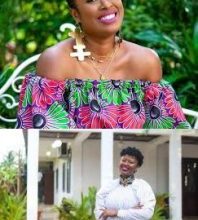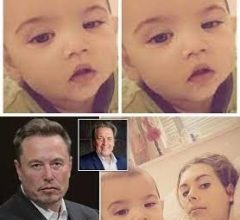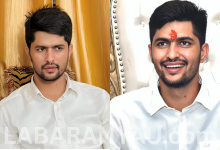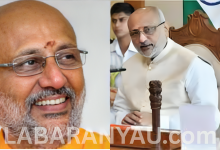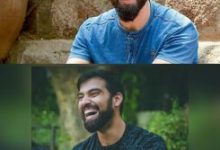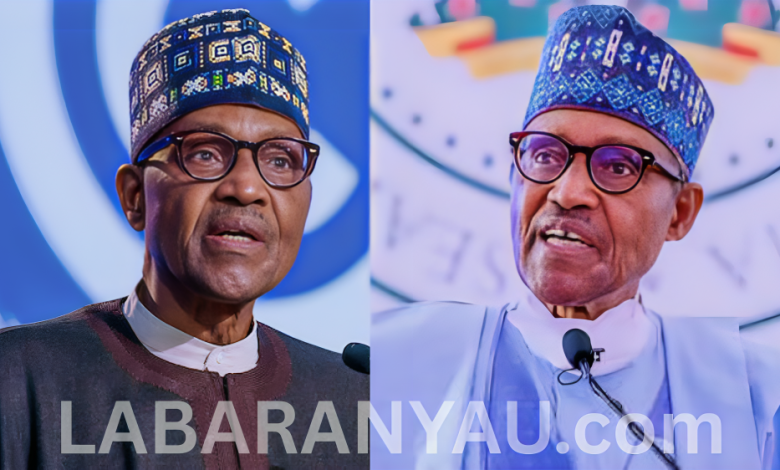
Muhammadu Buhari Biography
Muhammadu Buhari (17 December 1942 – 13 July 2025) was a Nigerian military officer, politician, and statesman who served as Nigeria’s Head of State from 1983 to 1985 and later as a democratically elected President from 2015 to 2023.
Born in Daura, Katsina State, he had a long military career, playing significant roles during the Nigerian Civil War and serving in top command positions before leading a coup against Shehu Shagari’s civilian government.
Known for his anti-corruption stance and strict governance, his short military rule was marked by the War Against Indiscipline, economic austerity, and authoritarian policies.
After being overthrown in 1985, Buhari re-emerged in civilian politics, contesting presidential elections in 2003, 2007, and 2011 before winning in 2015.
His democratic presidency focused on security, anti-corruption, and social welfare programs like N-Power and school feeding initiatives, but also faced major criticisms over insecurity, economic challenges, and civil unrest, including the End SARS protests.
He was married to Safinatu (later divorced) and Aisha Buhari, with whom he had ten children in total.
Known for his modest lifestyle and devout Islamic faith, Buhari died on 13 July 2025 in London at age 82, leaving behind a mixed legacy of integrity, discipline, and controversy.
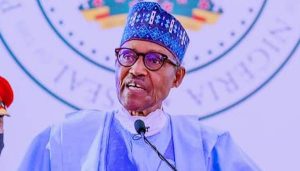
Muhammadu Buhari Wikipedia
| Attribute | Details |
|---|---|
| Full Name | Muhammadu Buhari |
| Date of Birth | 17 December 1942 |
| Place of Birth | Daura, Katsina State, Nigeria |
| Date of Death | 13 July 2025 |
| Place of Death | London, England |
| Age at Death | 82 years |
| Nationality | Nigerian |
| Ethnicity | Fulani |
| Religion | Islam |
| Occupation | Politician, Soldier, Former President, Anti-Corruption Crusader |
| Military Rank | Major General (Retired) |
| Years of Military Service | 1961–1985 |
| Education | NMTC (Kaduna), Mons Officer Cadet School (UK), DSSC (India), USAWC (USA) |
| Marital Status | Married |
| Spouse(s) | Safinatu Buhari (1971–1988), Aisha Buhari (1989–2025) |
| Children | 10 (including Yusuf, Zahra, Halima, Aisha, Hadiza) |
| Presidency (Civilian) | 29 May 2015 – 29 May 2023 |
| Military Head of State | 31 December 1983 – 27 August 1985 |
| Political Party | All Progressives Congress (APC) |
| Former Political Affiliations | ANPP, CPC |
| Major Roles | Governor of North-Eastern State, Petroleum Commissioner, PTF Chairman |
| Key Achievements | Anti-Corruption Drive, N-Power, School Feeding Program, Boko Haram containment |
| Signature Policies | War Against Indiscipline, RUGA, Social Investment Programs |
| Known For | Integrity, Discipline, Spartan Lifestyle, Controversial Leadership Style |
| Notable Quotes | “I belong to everybody and I belong to nobody.” |
| Languages Spoken | Hausa, English |
| Net Worth (Est. 2025) | $30 million – $120 million |
| Cause of Death | Medical complications (not publicly specified) |
| Burial | Not officially confirmed, expected in Daura, Katsina State |
| Notable Honors | GCFR (Nigeria), National Orders from Guinea, Niger, Liberia, Portugal, etc. |
| Traditional Titles | Enyioma I of Ebonyi, Ochioha I of Igboland, Ogbuagu I, Ikeogu I |
| Hobbies/Interests | Farming, Cattle Rearing, Reading |
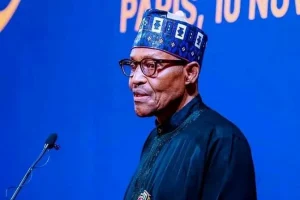
Muhammadu Buhari’s Early Life & Military Career (1942–1983)
Muhammadu Buhari was born on 17 December 1942 in Daura, Katsina State, into a Fulani family as the 23rd child of his father, Malam Hardo Adamu, a Fulani chief, and his mother, Zulaihat, who raised him after his father’s death.
He began his Islamic education in local Qur’anic schools before attending primary schools in Daura and Mai’Adua.
He later moved on to the Katsina Provincial Secondary School (now Government College Katsina) from 1956 to 1961, where he initially aspired to study medicine before shifting focus to a military career.
In 1962, Buhari joined the Nigerian Military Training College (NMTC) in Kaduna as part of Nigeria’s first intake of military officers after independence.
His training took him abroad, beginning with the Mons Officer Cadet School in Aldershot, England, where he was commissioned as a Second Lieutenant in January 1963.
He also attended the Mechanical Transport School in Borden, UK, and further received advanced military training at the Platoon Commanders’ Course at the Nigerian Defence Academy in Kaduna.
In later years, he attended the Defence Services Staff College in Wellington, India (1973), and the United States Army War College in Carlisle, Pennsylvania, earning a Master’s Degree in Strategic Studies.
Buhari’s military career progressed rapidly.
He participated in the Nigerian Civil War (1967–1970), where he served with distinction as a company commander, battalion commander, and brigade major in various sectors.
His discipline and leadership earned him recognition among his peers.
After the war, he held several prominent military and administrative roles.
He was appointed Governor of the North-Eastern State from August 1975 to March 1976 under the Murtala Mohammed regime.
Following that, he became the Federal Commissioner (Minister) for Petroleum and Natural Resources from March 1976 to June 1978, and also served as the Chairman of the newly created Nigerian National Petroleum Corporation (NNPC).
Buhari later rose to the position of General Officer Commanding (GOC) the 3rd Armoured Division of Jos in 1980, one of the most powerful posts in the Nigerian Army at the time.
As GOC, he led cross-border operations in response to Chadian military incursions into Nigerian territory in 1983, defying orders to withdraw, an act that earned him both praise and controversy for defending Nigeria’s sovereignty.
His steadfastness, anti-corruption stance, and nationalist views laid the foundation for his involvement in the military coup of 31 December 1983, which ousted the civilian government of President Shehu Shagari.
Buhari was then installed as the military Head of State in what he and his colleagues described as a necessary intervention to save Nigeria from collapse due to corruption and mismanagement.
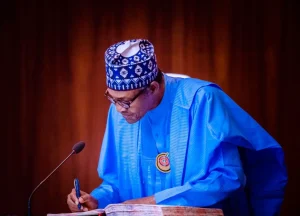
Muhammadu Buhari, Military Head of State (1983–1985)
On 31 December 1983, Major General Muhammadu Buhari became Nigeria’s military Head of State after leading a bloodless coup that overthrew the democratically elected government of President Shehu Shagari.
The military cited widespread corruption, electoral fraud, and economic mismanagement as justifications for the intervention.
Buhari, then General Officer Commanding the 3rd Armoured Division, was selected by the Supreme Military Council (SMC) to head the new military regime due to his reputation for discipline, patriotism, and incorruptibility.
Upon assuming office, Buhari launched an aggressive campaign to restore national discipline and order.
His administration introduced the controversial “War Against Indiscipline” (WAI) in March 1984, targeting behaviors such as lateness, disorderliness in public places, and corruption.
Public conduct was strictly monitored, and citizens were subjected to harsh penalties, including military-style punishments for minor infractions.
While the program was praised by some for instilling civic values, critics viewed it as oppressive.
Buhari’s government implemented strict economic measures to address the collapsing economy and declining foreign reserves.
He introduced austerity policies, cut imports to reduce dependency on foreign goods, and suspended most external loan repayments.
Nigeria’s currency, the naira, was deliberately not devalued under his regime, a stance that put the government at odds with the International Monetary Fund (IMF).
These policies, although meant to protect Nigeria’s economy, led to inflation, shortages of goods, and increased hardship for the average citizen.
One of the hallmark features of Buhari’s regime was its anti-corruption drive.
Several politicians, government officials, and businesspersons from the previous administration were arrested and detained without trial, with some receiving prison sentences of up to 300 years under special military tribunals.
The Public Officers (Protection Against False Accusation) Decree and other retroactive laws granted the regime sweeping powers to detain individuals indefinitely.
Many critics, including international human rights organizations, condemned these laws as draconian and abusive of civil liberties.
Buhari’s administration also faced international embarrassment during the botched 1984 Umaru Dikko Affair, a failed attempt to kidnap and forcibly repatriate former Transport Minister Umaru Dikko from London in a diplomatic crate.
The plot was exposed by British authorities, leading to a diplomatic crisis with the United Kingdom and a strain in Nigeria’s foreign relations.
Despite efforts to project transparency and restore order, Buhari’s administration was accused of selective justice, human rights violations, censorship of the press, and the suppression of political dissent.
His rigidity and refusal to adjust his policies or share power with other military factions led to growing discontent within the military hierarchy.
On 27 August 1985, after just 20 months in power, Buhari was overthrown in a palace coup led by General Ibrahim Babangida, his Chief of Army Staff.
The coup was bloodless and justified because Buhari had become inflexible, authoritarian, and failed to consult other members of the ruling council.
Buhari was subsequently detained for over three years, marking a temporary end to his political involvement until his reemergence in Nigeria’s democratic landscape decades later.
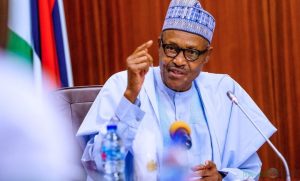
Muhammadu Buhari Detention and Civilian Life (1985–2015)
Following his ouster on 27 August 1985 in a bloodless coup led by General Ibrahim Babangida, Muhammadu Buhari was detained without charge for over three years, primarily in Benin City.
During his detention, Buhari maintained a strong sense of discipline and refused to speak publicly or negotiate for his release.
This period solidified his reputation as a principled but rigid nationalist committed to order and anti-corruption, even in the face of personal adversity.
Upon his release in 1988, Buhari retreated into a quiet civilian life, deliberately avoiding political attention.
He focused on his family, religious practices, and farm in Daura, Katsina State. However, his integrity and military record continued to draw national attention.
In 1994, under the regime of General Sani Abacha, Buhari was appointed Chairman of the Petroleum Trust Fund (PTF), an agency created to manage petroleum subsidy savings for infrastructural development.
Buhari ran the PTF with a reputation for transparency, efficiency, and anti-corruption, using military-style discipline to implement projects in education, health, and roads.
Despite the praise, there were also criticisms regarding the fund’s perceived bias toward Northern Nigeria in its allocations.
After the return to democratic rule in 1999, Buhari gradually reentered national politics. Driven by a desire to combat corruption and reverse what he called “the decline of national values,” he ran for president three times under different platforms:
2003, under the All Nigeria Peoples Party (ANPP), 2007, again under ANPP, and 2011, under the Congress for Progressive Change (CPC), a party he founded in 2009
Despite strong grassroots support, particularly in Northern Nigeria, Buhari lost all three elections amid claims of widespread electoral fraud.
In each instance, he pursued legal redress through the courts, reinforcing his belief in democratic processes despite personal losses.
By the 2011 election, he was seen as a symbol of moral rectitude, attracting support from Nigerians frustrated with rampant corruption and insecurity.
In 2013, Buhari played a key role in merging his party, the CPC, with other major opposition parties, the Action Congress of Nigeria (ACN), the All Nigeria Peoples Party (ANPP), and a faction of the All Progressives Grand Alliance (APGA), to form the All Progressives Congress (APC).
This coalition aimed to challenge the dominance of the ruling People’s Democratic Party (PDP).
By 2014, Buhari had reinvented himself as a democrat, softening his previously hardline image and appealing to younger voters.
He launched his fourth bid for the presidency in 2015 under the APC, campaigning on three main pillars: anti-corruption, security, and economic reform.
His humble lifestyle, military background, and tough stance against corruption resonated with millions of Nigerians, especially amid dissatisfaction with President Goodluck Jonathan’s administration.
This transformation from a strict military ruler to a civilian democrat positioned Buhari for his most significant political victory yet: a historic electoral win in March 2015, making him the first opposition candidate to defeat an incumbent president in Nigeria’s democratic history.
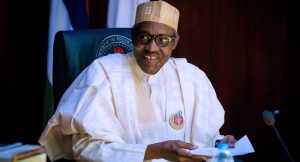
Muhammadu Buhari Democratic Presidency (2015–2023)
After three unsuccessful attempts, Muhammadu Buhari won the 2015 presidential election under the All Progressives Congress (APC) platform, defeating incumbent President Goodluck Jonathan.
This marked a historic moment in Nigeria’s political history, as it was the first peaceful transfer of power from a sitting president to an opposition candidate.
Buhari assumed office on 29 May 2015, with a campaign focused on anti-corruption, national security, and economic reform.
Anti-Corruption Drive:
Buhari’s administration was defined by a high-profile anti-corruption campaign. Key measures included:
The establishment of a whistleblower policy in 2016 which incentivized citizens with 2.5–5% rewards for reporting financial malpractice.
Support for the Economic and Financial Crimes Commission (EFCC), which secured over 600 convictions by 2018.
Prosecution of top officials, including Chief Justice Walter Onnoghen, former NSA Sambo Dasuki, and several military chiefs.
However, critics accused the campaign of being politically selective, with most prosecutions targeting opposition figures.
The 2020 arrest of EFCC chairman Ibrahim Magu over corruption allegations dented the credibility of the anti-graft efforts.
Security and Insurgency:
Buhari inherited a country plagued by Boko Haram insurgency, especially in the Northeast.
His government achieved early military successes by reclaiming territories and capturing the Sambisa Forest in 2016.
In 2017, 82 Chibok girls were freed through negotiation.
Despite this, insurgency and banditry persisted, with new threats from ISWAP, herdsmen-farmer clashes, and widespread banditry in the Northwest.
Key initiatives included:
The National Livestock Transformation Plan (NLTP)
The controversial RUGA policy, which was later suspended
Establishment of special task forces in affected regions
Nonetheless, Buhari’s response was criticized as slow and ineffective, particularly during crises like the Abuja-Kaduna kidnappings and Benue massacres.
Social Welfare and Economic Reforms:
Buhari launched the National Social Investment Program (NSIP) in 2016, the largest in Nigeria’s history, targeting youth, women, and the poor. Its components included:
N-Power: Youth employment and skills acquisition
Conditional Cash Transfer (CCT): Direct cash support to poor households
GEEP: Microloans through TraderMoni, MarketMoni, and FarmerMoni
School Feeding Program: Free meals to primary school pupils in food-insecure areas
While praised for its scale, critics pointed to poor implementation and a lack of transparency in disbursements.
Economic Challenges:
Nigeria entered recession in 2016, due to falling oil prices and a delayed economic response. Buhari focused on:
Diversifying the economy through agriculture, mining, and infrastructure
Establishing the Presidential Enabling Business Environment Council (PEBEC)
Securing loans from China, the World Bank, and the IMF
Despite these efforts, unemployment, inflation, and debt levels remained high. His second term also saw the controversial closure of Nigeria’s land borders in 2019, which disrupted trade.
Civil Protests and Public Unrest:
In October 2020, the #EndSARS protests erupted nationwide over police brutality.
Though Buhari announced the disbandment of SARS and introduced SWAT, protests continued after the Lekki Toll Gate shooting, leading to national and international outcry.
In 2021, Buhari’s government banned Twitter after it deleted his tweet, seen as inciting violence, drawing criticism for suppressing free speech.
COVID-19 Response:
During the COVID-19 pandemic, Buhari set up a Presidential Task Force, imposed lockdowns in Lagos, Abuja, and Ogun, and initiated public health campaigns.
His Chief of Staff, Abba Kyari, died of the virus in April 2020.
Though the government took steps to curb the spread, the vaccine rollout was slow, and Nigeria’s health infrastructure struggled under pressure.
Foreign Relations and Global Standing:
Buhari actively engaged in African diplomacy, condemned the Rohingya genocide, and was the first president to call for a global treaty to end violence against women and girls.
He participated in ECOWAS peace missions, strengthened ties with China, the U.S., India, and South Africa, and championed intra-African trade through the African Continental Free Trade Area (AfCFTA).
Re-Election and Final Years:
In February 2019, Buhari was re-elected for a second term, defeating Atiku Abubakar.
His second term was marked by slower momentum, health-related absences, and increasing criticism over insecurity and economic stagnation.
Buhari peacefully handed over power to Bola Ahmed Tinubu on 29 May 2023, fulfilling a major democratic milestone in Nigeria’s Fourth Republic.
He returned to his hometown in Daura, Katsina, marking the end of his active political career.
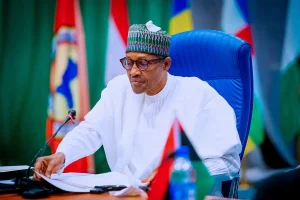
Muhammadu Buhari’s Anti-Corruption Drive
One of the central pillars of President Muhammadu Buhari’s administration was a rigorous anti-corruption campaign, rooted in his long-standing reputation for discipline and integrity.
Upon assuming office in May 2015, Buhari pledged to eradicate corruption from the public sector, recover looted assets, and prosecute offenders regardless of status.
1. Whistleblower Policy (21 December 2016): The Federal Ministry of Finance launched a whistleblower program offering 2.5%–5% rewards to individuals who provided information about financial mismanagement, fraud, theft, or violations of financial regulations.
The policy led to significant recoveries, including hidden cash stashed in residential apartments, airports, and bank accounts.
2. EFCC Convictions & Asset Recovery: Under Buhari’s watch, the Economic and Financial Crimes Commission (EFCC), led by Ibrahim Magu, secured over 600 convictions by May 2018, including high-profile politicians, military officers, and business moguls.
Massive recoveries in cash and assets were made, both domestically and abroad.
Notable cases included:
- Sambo Dasuki, former National Security Adviser, for allegedly misappropriating $2.2 billion meant for arms procurement.
- Raymond Dokpesi, Attahiru Bafarawa, and Bashir Yuguda—implicated in the same arms deal scandal.
- Chief Justice Walter Onnoghen, convicted in April 2019 by the Code of Conduct Tribunal for false asset declaration.
- Mohammed Bello Adoke, former Attorney General, was extradited in 2019 to face corruption charges.
3. Crackdown on Judiciary and Military Elites: For the first time in Nigeria’s history, judges and military service chiefs were prosecuted.
This sent a strong message that no one was above the law, earning both praise and criticism for the administration.
4. Transparency and Repatriation of Funds: Buhari’s administration collaborated with international governments and institutions to repatriate looted funds.
Nigeria recovered hundreds of millions of dollars, notably from the Abacha loot, in agreements with Switzerland, the United States, and the United Kingdom.
Controversies and Setbacks:
1. Accusations of Selective Justice: The anti-corruption campaign was often accused of targeting opposition members, while some ruling party members accused of corruption were perceived to be shielded.
2. Ibrahim Magu’s Arrest (July 2020): EFCC Chairman Magu, the face of Buhari’s anti-corruption drive, was arrested by the Department of State Services (DSS) over allegations of financial misconduct and abuse of office.
He was replaced by Mohammed Umar, a move that dented the campaign’s credibility.
3. Maina Pension Scandal: In 2020, Abdulrasheed Maina, former head of the Pension Reform Taskforce, was arrested and extradited from Niger.
He faced a 12-count charge of fraud and money laundering involving billions of naira.
Senator Ali Ndume was also briefly arrested for standing surety when Maina jumped bail.
4. 2020 Transparency International Report:
Despite the high-profile arrests and convictions, Nigeria ranked low on the Corruption Perception Index, reflecting continued public concern over graft and institutional weakness.
Legacy of the Campaign:
Buhari’s anti-corruption war reshaped public discourse on governance and accountability in Nigeria.
While the initiative recorded notable legal victories and asset recoveries, critics argue that institutional reforms were inadequate, and systemic corruption remained pervasive.
Nevertheless, Buhari’s administration laid foundational policies that future governments could build upon to strengthen transparency and justice.
Muhammadu Buhari Security and National Challenges (2015–2023)
Security remained one of the most pressing issues during Muhammadu Buhari’s presidency, with the country facing a complex array of threats ranging from terrorism and banditry to communal violence and separatist agitations.
Despite Buhari’s military background and campaign promises to restore peace and stability, security challenges persisted, often evolving in scale and intensity.
Boko Haram Insurgency:
Upon Buhari’s assumption of office in 2015, Nigeria had lost control of several territories in the Northeast to Boko Haram. His administration prioritized the defeat of the insurgents:
By December 2016, most territories previously held by the group were reclaimed.
Sambisa Forest, a key Boko Haram stronghold, was captured.
Buhari declared Boko Haram “technically defeated.”
Over 2 million people were displaced; humanitarian challenges in health, nutrition, and education increased.
The group later splintered into factions: Boko Haram under Abubakar Shekau and ISWAP under Abu Musab al-Barnawi.
In May 2021, Shekau committed suicide after being surrounded by ISWAP forces. Hundreds of his followers later surrendered to the government.
Banditry in Northern Nigeria:
From 2017 onwards, Northwestern Nigeria witnessed a surge in banditry, with armed groups attacking villages, kidnapping for ransom, and seizing cattle:
The Abuja–Kaduna highway became infamous for abductions.
By 2021, reports indicated that about 45 people were kidnapped daily.
Intelligence revealed links between bandits and Boko Haram elements, especially in Zamfara and Borno States.
Efforts to curb banditry included airstrikes, military deployments, and the proscription of bandit groups as terrorists.
Herder–Farmer Conflicts:
The Middle Belt and Southern Nigeria witnessed rising tensions between nomadic Fulani herders and sedentary farmers:
Conflicts over land and water led to thousands of deaths and massive displacement.
Accusations of ethnic and religious bias surfaced as Buhari, a Fulani, was criticized for alleged silence on herder violence.
The government introduced the National Livestock Transformation Plan and the controversial RUGA policy, which proposed settlements for herders, but backlash from Southern states led to its suspension.
Biafra Separatist Agitations:
The Indigenous People of Biafra (IPOB), led by Nnamdi Kanu, gained prominence for demanding the secession of the Southeastern region:
Kanu was arrested in 2015, later jumped bail, fled, and was re-arrested in 2021.
IPOB was proscribed as a terrorist organization, and military operations were launched in the Southeast.
The region faced periodic unrest, “sit-at-home” protests, and targeted attacks on government facilities.
Shia Crackdown:
In December 2015, members of the Islamic Movement of Nigeria (IMN), a Shia Muslim group led by Ibrahim Zakzaky, clashed with the Nigerian Army:
The army stormed Zakzaky’s compound, killing hundreds of followers.
Zakzaky was detained for nearly six years before being acquitted and released in July 2021.
The group remained banned and periodically clashed with security forces.
Niger Delta Militancy:
Though relatively calm compared to earlier years, the Niger Delta Avengers and other militant groups occasionally sabotaged oil pipelines, affecting Nigeria’s oil output and revenue:
The Hydrocarbon Pollution Remediation Project (HYPREP) was launched to clean up Ogoniland, but progress was slow.
Demands for economic autonomy and environmental justice continued to fuel unrest.
End SARS Protests (2020):
In October 2020, nationwide protests erupted against the notorious Special Anti-Robbery Squad (SARS):
Buhari disbanded SARS and announced the creation of SWAT.
Protesters demanded deeper police reforms.
The protests were marred by violence, culminating in the Lekki Toll Gate shooting on 20 October 2020, which drew global outrage.
Buhari later deployed security forces to prevent further anti-government protests.
Check Out: Mohammed Badaru Abubakar Biography | Education, Net Worth, Politics, Wives
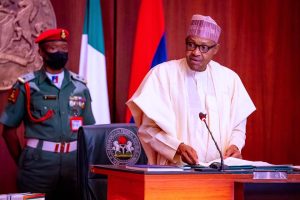
Muhammadu Buhari End SARS Movement and Civil Protests (2020–2021)
The End SARS Movement emerged as one of the most defining civil protests in Nigeria’s democratic history during Buhari’s second term, highlighting the public’s growing frustration with police brutality, impunity, and government inaction.
Origins and Escalation:
The movement began in early October 2020, fueled by viral videos showing extrajudicial killings and abuses committed by the Special Anti-Robbery Squad (SARS), a notorious unit of the Nigerian Police Force.
Despite previous disbandment announcements over the years, public trust had eroded due to repeated rebranding without genuine reform.
Protests erupted across major cities, including Lagos, Abuja, Port Harcourt, and Benin, demanding:
The immediate disbandment of SARS.
Justice for victims of police violence.
Comprehensive police reform.
Better governance and accountability.
Government Response:
On 11 October 2020, President Muhammadu Buhari announced the dissolution of SARS, promising extensive police reforms.
The Inspector General of Police, Mohammed Adamu, introduced a new unit called SWAT (Special Weapons and Tactics) on 13 October 2020, but this was widely rejected by protesters as a superficial fix.
Lekki Toll Gate Incident:
The climax of the protests occurred on 20 October 2020, when soldiers allegedly opened fire on peaceful demonstrators at the Lekki Toll Gate in Lagos, killing and injuring several. This event drew:
International condemnation from the UN, Amnesty International, and global celebrities.
The government initially denied any killings, sparking further outrage and mistrust.
The incident became a symbol of state repression and youth resilience.
Aftermath and Crackdowns:
Widespread looting and destruction followed in some cities after the Lekki shooting.
The government launched judicial panels of inquiry across states to investigate police abuses and provide compensation to victims.
The End SARS hashtag became a global movement, exposing Nigeria’s human rights record.
Buhari’s Address and Public Reaction:
In a national broadcast on 22 October 2020, Buhari:
Urged protesters to stand down.
Warned against further demonstrations.
Offered no clear acknowledgment of the Lekki shooting or sympathy for victims, which drew sharp criticism.
Continued Civil Protest Suppression:
On 12 June 2021 (Democracy Day), Buhari ordered the deployment of police and military forces nationwide to suppress planned anti-government protests.
Activists accused the government of shrinking civic space, harassing journalists, and surveilling organizers.
The End SARS movement was not only a protest against police brutality, but also a larger expression of youth anger over poor governance, unemployment, and insecurity.
Though the protests were brutally suppressed, they reshaped political discourse in Nigeria and highlighted the power of youth-led activism in the digital age.
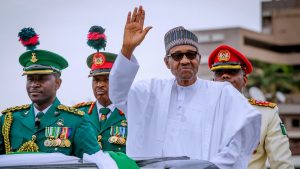
Muhammadu Buhari COVID-19 Pandemic Response (2020–2022)
The outbreak of the COVID-19 pandemic in early 2020 posed one of the most significant public health and economic challenges during Buhari’s presidency.
On 30 March 2020, President Muhammadu Buhari addressed the nation and announced a two-week lockdown in major cities, Lagos, Abuja, and Ogun State, to curb the spread of the virus.
Before the announcement, Buhari had formed a Presidential Task Force on COVID-19 headed by Boss Mustapha, the Secretary to the Government of the Federation.
His Chief of Staff, Abba Kyari, tested positive for COVID-19 in March 2020 and later died on 17 April 2020, raising public anxiety over the President’s health, though Buhari tested negative.
Government Measures:
Lockdowns, curfews, and restrictions on gatherings were implemented.
Economic interventions included: Conditional cash transfers to vulnerable citizens, Suspension of interest on certain government loans, and Support packages for small businesses.
Criticism:
The government faced criticism for:
Slow vaccine rollout and limited access to testing.
Inadequate healthcare infrastructure.
Lack of transparency in the distribution of COVID-19 palliatives.
Protests erupted after warehouses with hoarded COVID-19 relief items were discovered across several states in October 2020.
Vaccination Effort:
Nigeria began its COVID-19 vaccination program in March 2021, receiving initial doses through the COVAX initiative.
Vaccine hesitancy and logistics hindered swift distribution.
By late 2022, Nigeria had vaccinated only a fraction of its 200 million citizens.
Despite these challenges, the Buhari administration managed to prevent a total health system collapse and laid a foundation for Nigeria’s public health reform in the post-pandemic era.
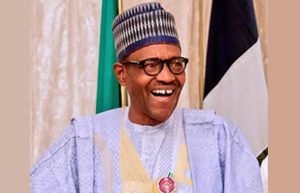
Muhammadu Buhari’s Foreign Policy (2015–2023)
President Muhammadu Buhari’s foreign policy focused on regional security, anti-corruption cooperation, economic diplomacy, and global advocacy for human rights.
African Engagement:
Buhari prioritized relationships within West Africa, actively participating in ECOWAS and AU summits.
He played a role in:
Mediation in The Gambia in 2017 during Yahya Jammeh’s refusal to cede power.
Regional collaboration on counter-terrorism efforts, especially against Boko Haram, through the Multinational Joint Task Force (MNJTF).
Anti-Corruption Diplomacy:
Buhari used global platforms to call for the repatriation of looted assets, recovering billions from foreign jurisdictions.
He partnered with countries like the UK, UAE, and Switzerland for mutual legal assistance.
Global Advocacy:
At the UN General Assembly, Buhari:
Condemned Israel’s occupation of Palestinian territories.
Decried Myanmar’s ethnic cleansing of Rohingya Muslims.
Called for a global treaty to end violence against women and girls — the first African leader to do so.
Tensions and Criticism:
South Africa-Nigeria relations were strained due to recurring xenophobic attacks on Nigerians in 2008, 2015, and 2019.
In October 2019, Buhari and South African President Cyril Ramaphosa met to resolve diplomatic tensions and strengthen bilateral ties.
Buhari was criticized for frequent international travels while domestic crises worsened.
He also drew backlash for delayed responses to issues like racial injustice abroad (e.g., George Floyd’s death) compared to domestic human rights concerns.
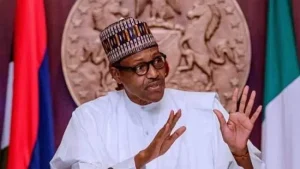
Muhammadu Buhari Post-Presidency (2023–2025)
After serving two constitutional terms as Nigeria’s democratic president, Muhammadu Buhari peacefully handed over power to his successor, Bola Ahmed Tinubu, on 29 May 2023, in a ceremony held at Eagle Square, Abuja.
The transfer of power marked a significant moment in Nigeria’s democratic history and underscored Buhari’s commitment to electoral processes and constitutionalism.
Immediately following the inauguration, Buhari departed Abuja and returned to his hometown of Daura in Katsina State, where he was warmly received by traditional rulers, political associates, and community members.
In retirement, he adopted a low-profile lifestyle, spending most of his time on his family farm, engaging in agriculture and private life away from the media spotlight.
Buhari occasionally released public statements on national matters and made limited appearances at public events, often calling for national unity, peace, and good governance.
Though he stayed largely out of partisan politics, he maintained influence within the All Progressives Congress (APC) and was regularly consulted on matters of state by key political figures.
Tragically, Muhammadu Buhari died on 13 July 2025 in London, United Kingdom, while receiving medical treatment after being hospitalized. He was 82 years old.
His death was announced by his longtime spokesperson, Garba Shehu, sparking an outpouring of tributes from across Nigeria and beyond.
President Bola Tinubu described Buhari as a man of “discipline, integrity, and purpose” and ordered Vice-President Kashim Shettima to fly to the UK to accompany Buhari’s remains back to Nigeria.
Tributes poured in from African leaders, foreign diplomats, and former presidents, acknowledging Buhari’s impact on Nigerian politics and public life.
His death marked the end of a long, storied career that spanned both military and civilian leadership, leaving behind a complex but undeniable legacy of service, nationalism, and reform.
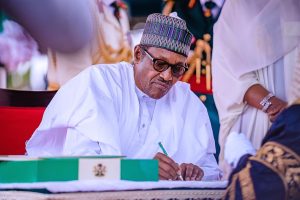
Muhammadu Buhari Controversies
Muhammadu Buhari’s long career in public service was marked by many controversies that sparked national debates and drew both criticism and defense from the public and political analysts.
1. $2.8 Billion NNPC Scandal (1977–1979): While serving as Federal Commissioner for Petroleum and Natural Resources, $2.8 billion was alleged to have gone missing from the Nigerian National Petroleum Corporation (NNPC) accounts in a UK bank.
Although General Ibrahim Babangida later accused Buhari of involvement, a Judicial Tribunal led by Justice Ayo Irikefe found no evidence of embezzlement, though it noted accounting lapses.
2. 1983 Chadian Military Incident: In violation of a presidential order by President Shehu Shagari, Buhari pursued Chadian forces beyond Nigerian borders during a territorial skirmish in Borno State, leading to over 100 casualties and prisoners of war.
The operation, though praised militarily, drew criticism for breaching diplomatic boundaries.
3. Umaru Dikko Affair (1984): Buhari’s military regime was linked to a failed kidnapping attempt of former Minister Umaru Dikko in London, who was accused of embezzling $1 billion.
Dikko was found drugged and hidden in a crate labeled as “diplomatic baggage” at Heathrow Airport. The incident damaged Nigeria’s diplomatic reputation with the UK.
4. 53 Suitcases Scandal (1984): During Buhari’s regime, 53 uninspected suitcases allegedly filled with cash were cleared through customs for the Emir of Gwandu, whose son was Buhari’s aide-de-camp.
The event raised suspicions of favoritism and corruption, despite his public anti-corruption stance.
5. PTF Military Allocation (1995–1999): As Chairman of the Petroleum Trust Fund (PTF) under Sani Abacha, Buhari was criticized for allocating 20% of PTF funds to the military, raising concerns about a lack of accountability and transparency in defense spending.
6. Sharia Advocacy (2001): Buhari once declared support for nationwide implementation of Sharia law, stating, “God willing, we will not stop the agitation for the total implementation of Sharia in the country.”
Critics viewed this as evidence of religious bias, though Buhari later clarified he only supported Sharia in majority-Muslim states and opposed religious violence.
7. Plagiarism Scandal (2016): Buhari faced public embarrassment after a portion of his “Change Begins With Me” campaign speech was discovered to be plagiarized from Barack Obama’s 2008 speech.
The presidency apologized and blamed overzealous staff, promising disciplinary actions and new anti-plagiarism measures.
8. Twitter Ban (2021): After Twitter deleted one of Buhari’s posts for violating its policy, the Nigerian government banned the platform for several months, sparking global outrage and accusations of digital authoritarianism.
The ban was lifted only after Twitter agreed to certain conditions, including local registration and tax compliance.
9. Signature Forgery Scandal (2023): In a high-profile court case, officials allegedly forged Buhari’s signature to withdraw $6.2 million from the Central Bank of Nigeria.
Former SGF Boss Mustapha testified about the incident, which caused another wave of criticism regarding document security and presidential oversight.
10. Comments About Women (2016): During a joint press conference in Germany, standing beside Chancellor Angela Merkel, Buhari said, “My wife belongs in the kitchen, the living room, and the other room.”
The remark, made in response to Aisha Buhari’s political comments, was condemned worldwide as sexist and demeaning.
11. Office of the First Lady: Buhari previously vowed to abolish the First Lady’s office, calling it “unconstitutional and wasteful”, but after his election, Aisha Buhari operated a fully functioning First Lady’s office under the title “Wife of the President”, drawing criticism for contradicting his campaign promise.
Despite his efforts at reform, these controversies contributed to the complex public perception of Buhari as a leader whose actions sometimes contradicted his rhetoric on integrity, transparency, and democratic values.
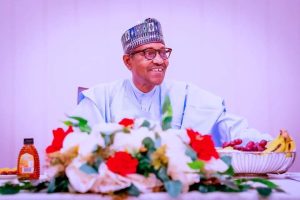
Muhammadu Buhari’s Personal Life
In 1971, Buhari married his first wife, Safinatu Yusuf, with whom he had five children: four daughters, Zulaihat, Fatima, Hadiza, Safinatu, and a son named Musa (who later died).
Safinatu was noted for her quiet support during Buhari’s military rule.
However, the couple divorced in 1988, reportedly due to Buhari’s long political detentions and his austere lifestyle.
On 14 January 2006, Safinatu passed away from complications related to diabetes.
In December 1989, Buhari married Aisha Halilu, a trained beauty therapist and public speaker, who later became First Lady of Nigeria during Buhari’s civilian presidency.
The couple had five children: Yusuf, Zahra, Halima, Aisha, and Amina.
Their son Yusuf Buhari made headlines in 2017 after surviving a serious motorcycle accident, and in August 2021, he married Zahra Nasir Bayero, the daughter of Emir Nasiru Ado Bayero of Bichi.
Buhari was a devout Muslim and regularly observed Islamic practices.
His faith played a significant role in his values and public life, although he faced criticism over alleged religious bias during his presidency, accusations he denied.
Outside politics, Buhari enjoyed a quiet life on his Daura farm in Katsina State, where he reared cattle, sheep, horses, and maintained a modest orchard.
He was passionate about agriculture, seeing it as both a profession and a contribution to national development.
Despite the immense power he wielded, Buhari was often described as reserved, stoic, and deeply private, rarely granting personal interviews or indulging in extravagance.
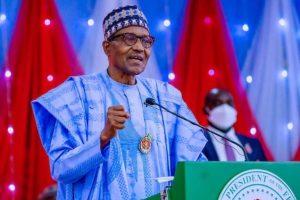
Muhammadu Buhari’s Net Worth (2025)
Buhari’s estimated net worth by 2025: USD 30–120 million, with most third-party sources clustering between $80–110 million.
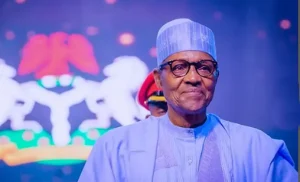
Muhammadu Buhari Death
Muhammadu Buhari died on 13 July 2025 in London, England, at the age of 82, while receiving medical treatment for an undisclosed illness.
His death was officially announced by Garba Shehu, his longtime spokesperson, who stated that the former president had been hospitalized before his passing.
The news of Buhari’s death triggered a wave of national mourning and global tributes.
Nigerian President Bola Ahmed Tinubu described Buhari’s legacy as “enduring and significant to Nigeria’s democratic path,” acknowledging his contributions to the fight against corruption, national unity, and governance reforms.
In honor of his service, Vice President Kashim Shettima was dispatched to the United Kingdom to accompany Buhari’s body back to Nigeria.
Upon return, his remains were received with full military honors and Islamic rites in Daura, Katsina State, where he was buried next to his family home, in line with Muslim traditions.
Tributes poured in from across Africa and the world.
Regional leaders praised Buhari as a “soldier-statesman,” while former colleagues, political allies, and opponents reflected on his complex legacy, defined by both discipline and controversy.
Flags were flown at half-mast, and national prayers were offered in mosques and churches across Nigeria.
His passing marked the end of a six-decade public life, spanning military leadership, political transformation, and civilian governance.
Check Out: Hannatu Musa Musawa Biography | Education, Net Worth, Politics, Husband
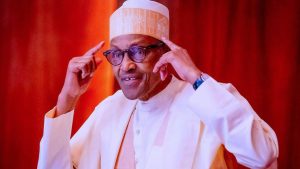
Muhammadu Buhari’s Legacy and Honours
Muhammadu Buhari’s legacy remains deeply debated and complex.
To his supporters, he was a symbol of discipline, integrity, and anti-corruption, earning the nickname “Mai Gaskiya” (the Honest One) in Northern Nigeria.
As both a military ruler and a democratic president, Buhari was known for his austere personal lifestyle, his aversion to ostentatious displays of wealth, and his consistent messaging around patriotism, morality, and national service.
His anti-corruption war, especially during his democratic presidency, set a new tone in Nigeria’s political landscape, leading to several high-profile convictions and asset recoveries.
However, critics argue that the campaign was selective, and his administration tolerated impunity among some close allies.
In security, Buhari prioritized the fight against Boko Haram and other internal threats like banditry and herder-farmer clashes.
Although there were tactical victories, such as the reclaiming of Boko Haram-held territories, his government was heavily criticized for rising insecurity, kidnappings, and military overstretch.
Buhari’s economic policies, while emphasizing infrastructure and social programs like N-Power, TraderMoni, and school feeding, were seen by some as inadequate in addressing joblessness and inflation.
His tenure witnessed two recessions, a weakened naira, and rising public debt, leading to widespread frustration.
Despite controversies, such as the Twitter ban, the End SARS response, and accusations of ethnic favoritism, Buhari is recognized for being the first opposition candidate in Nigeria’s history to defeat an incumbent president (2015) and peacefully transfer power in 2023, thus strengthening Nigeria’s democratic tradition.
National Honours:
Grand Commander of the Order of the Federal Republic (GCFR) – 1983 (Nigeria’s highest national honor)
Foreign Honours:
Benin Republic: Grand Cross of the National Order of Benin (2015)
Equatorial Guinea: Grand Collar of the Order of Independence (2016)
Guinea-Bissau: Medal of Amílcar Cabral (8 December 2022)
Liberia: Grand Cordon of the Order of the Pioneers of Liberia (27 July 2019)
Niger Republic: Grand Cross of the National Order of Niger (17 March 2021)
Portugal: Grand Collar of the Order of Prince Henry (30 June 2022)
Senegal: Grand Cross of the National Order of the Lion (7 July 2022)
Serbia: Second Class of the Order of the Republic of Serbia (2016)
Traditional Titles:
Ogbuagu I of Igboland (before 2017)
Enyioma I of Ebonyi – 2017
Ochioha I of Igboland – 2017
Ikeogu I of Igboland – 2018
FAQs
1. Who is Muhammadu Buhari?
Muhammadu Buhari was a Nigerian military general and politician who served as Nigeria’s military ruler (1983–1985) and later as democratically elected president (2015–2023).
2. When was Muhammadu Buhari born, and when did he die?
He was born on 17 December 1942 in Daura, Katsina State, and died on 13 July 2025 in London, aged 82.
3. What is Muhammadu Buhari most known for?
He is known for his anti-corruption stance, his military discipline, and for being the first Nigerian opposition candidate to defeat an incumbent president (Goodluck Jonathan in 2015).
4. What was his military rank and background?
He was a Major General in the Nigerian Army and had extensive military training in Nigeria, the UK, India, and the USA. He also served in the Nigerian Civil War.
5. What political parties did Buhari belong to?
He was initially with ANPP and later formed the Congress for Progressive Change (CPC), which merged into the All Progressives Congress (APC).
6. What are the major achievements of Buhari’s presidency?
National Social Investment Program (N-Power, CCT, GEEP, NHGSF)
Whistle-blower policy
Prosecution of corrupt officials
Increased infrastructure spending
Negotiation for the Chibok girls’ release
7. What controversies was he involved in?
53 suitcases scandal (1984)
Umaru Dikko kidnapping attempt (1984)
Plagiarism scandal (2016)
Twitter ban (2021)
Signature forgery scandal (2023)
8. What was his role in the End SARS protests?
He disbanded the SARS unit but was criticized for the government’s crackdown on peaceful protesters, particularly the Lekki Toll Gate shooting.
9. What was his approach to the Boko Haram insurgency?
He claimed to have “technically defeated” Boko Haram and secured the release of several Chibok girls, but insurgency and banditry remained major issues.
10. What was Buhari’s family life like?
He had 10 children from two marriages. His second wife, Aisha Buhari, was active as First Lady despite his earlier stance to abolish the role.
11. What is Muhammadu Buhari’s net worth?
In 2015, he declared a net worth of about US$150,000, five homes, two cars, and livestock, reflecting his austere lifestyle.
12. What international honours did he receive?
Grand Collar of the Order of Prince Henry (Portugal)
Grand Cross of the National Order of the Lion (Senegal)
Order of Independence (Equatorial Guinea)
13. What is his legacy in Nigerian history?
Opinions are divided. Supporters hail his anti-corruption legacy and discipline; critics label him authoritarian and economically regressive.
Check Out: Imaan Sulaiman Ibrahim Biography | Education, Net Worth, Political Career, Personal Life
In Conclusion
Muhammadu Buhari (1942–2025) was a towering figure in Nigerian history, both revered and controversial.
From his early beginnings in Daura to the military barracks and presidential villa, Buhari’s life was defined by discipline, nationalism, and an uncompromising stance on corruption.
He served Nigeria as a military ruler (1983–1985) and later returned as a democratically elected president (2015–2023), becoming the first opposition candidate to defeat an incumbent president in Nigerian history.
While his administration initiated landmark programs like the National Social Investment Program, enforced fiscal discipline, and fought corruption, it also grappled with criticism over economic stagnation, insecurity, human rights concerns, and centralized governance style.
His role during the End SARS protests, the COVID-19 pandemic, and conflicts across the country remains the subject of both praise and scrutiny.
Upon his peaceful handover of power in 2023 and eventual death in 2025, Buhari left behind a complex but indelible legacy, admired by many for his integrity and simplicity, yet also remembered for controversies and authoritarian tendencies.
Whether as a soldier or a statesman, Buhari’s influence will continue to echo across Nigeria’s political landscape for generations to come.
Check Out: Abubakar Kyari Biography | Education, Net Worth, Political Career, Personal Life
Check Out: Prince Shuaibu Abubakar Audu Biography | Education, Net Worth, Political Career, Personal Life
Discover more from Labaran Yau
Subscribe to get the latest posts sent to your email.
